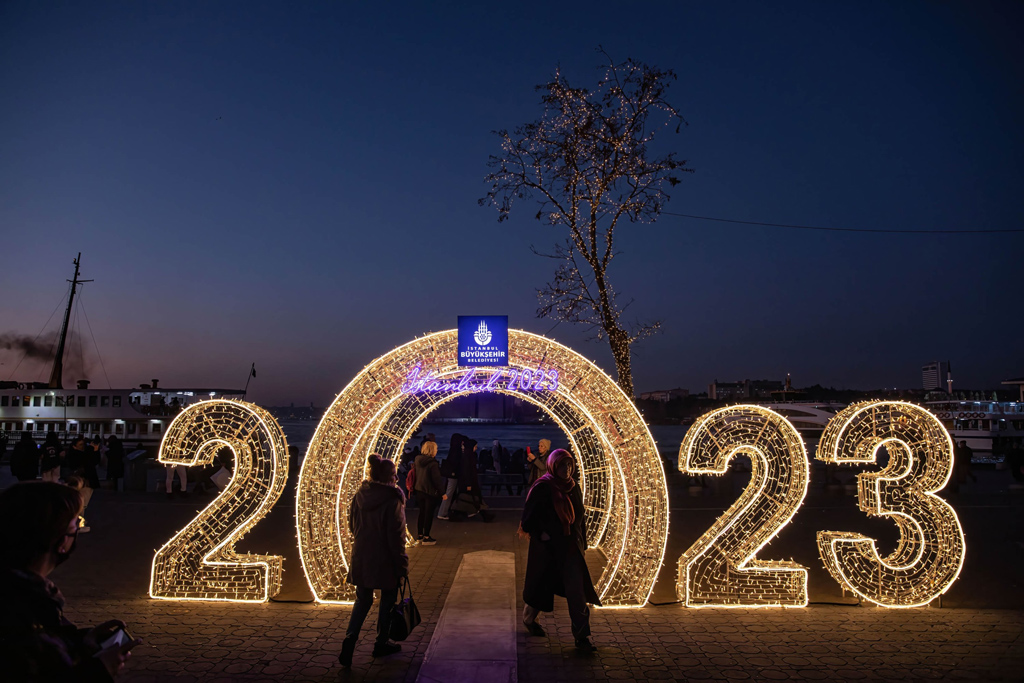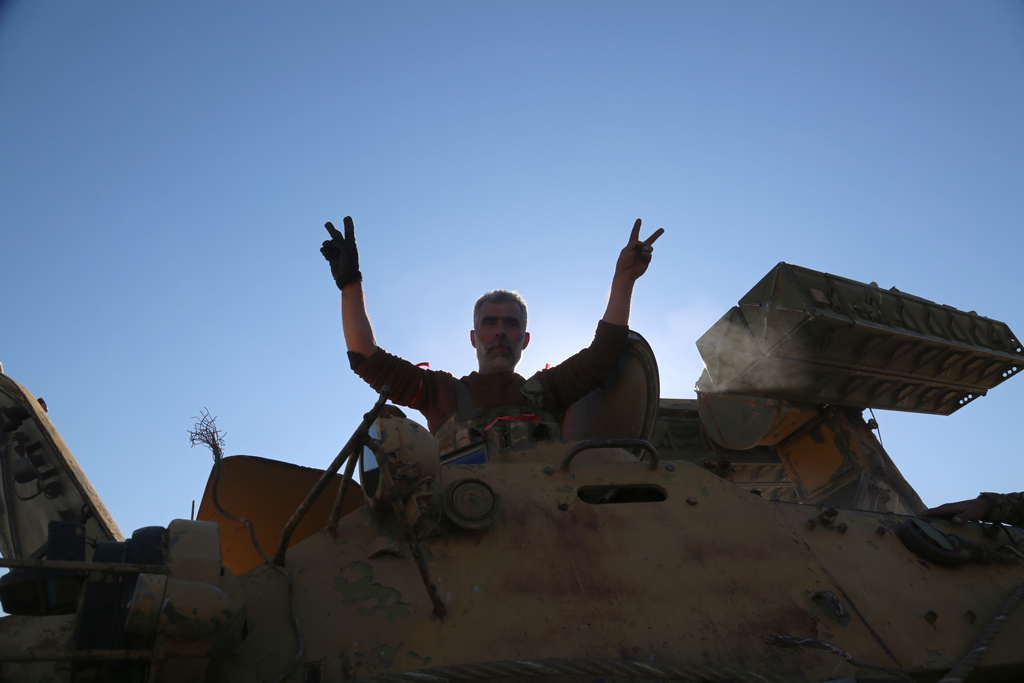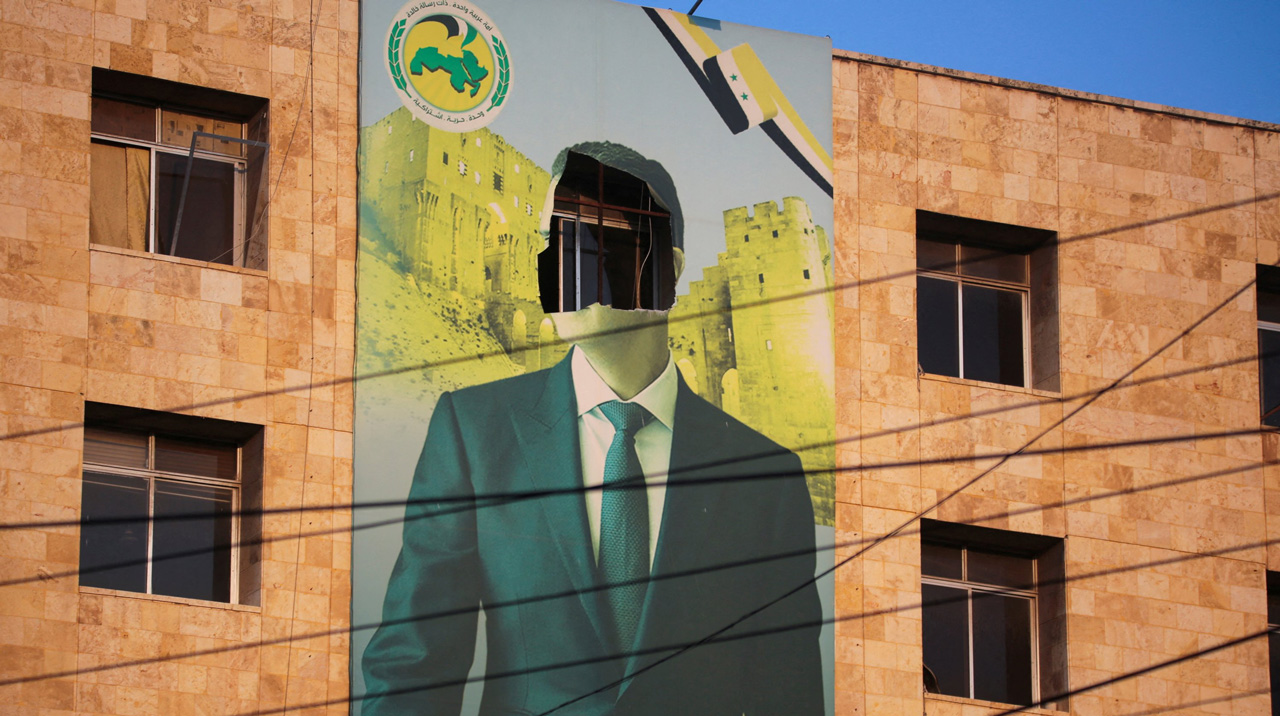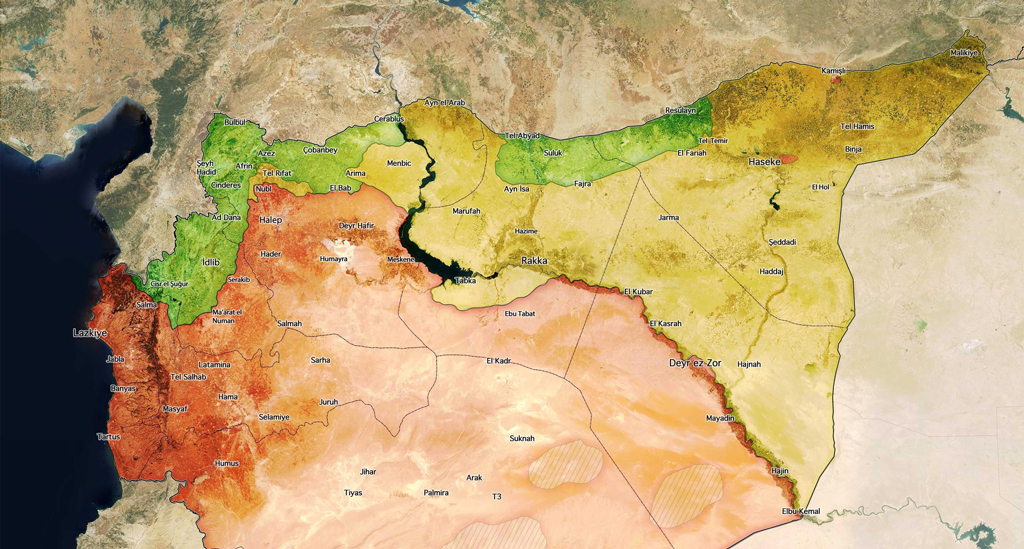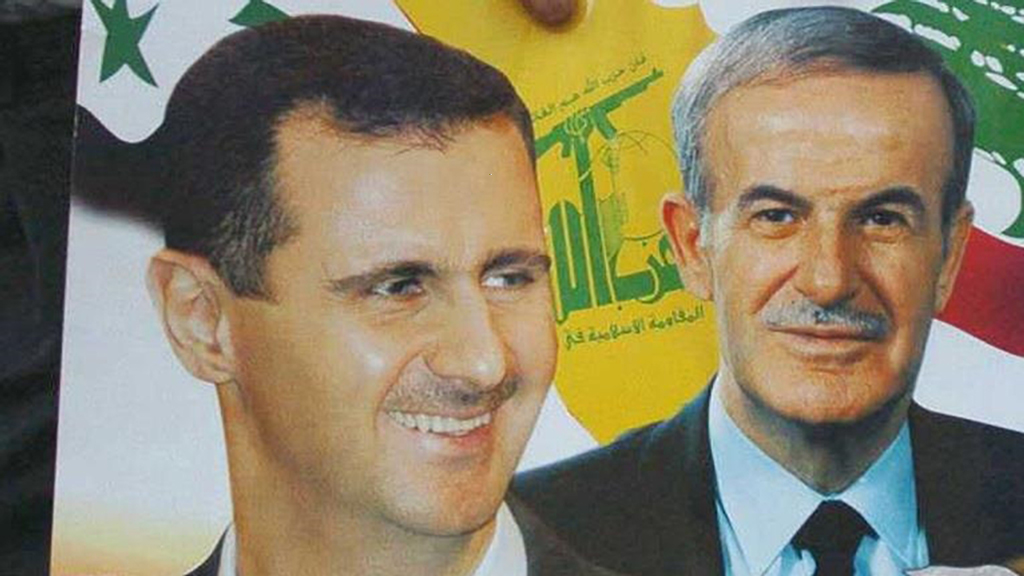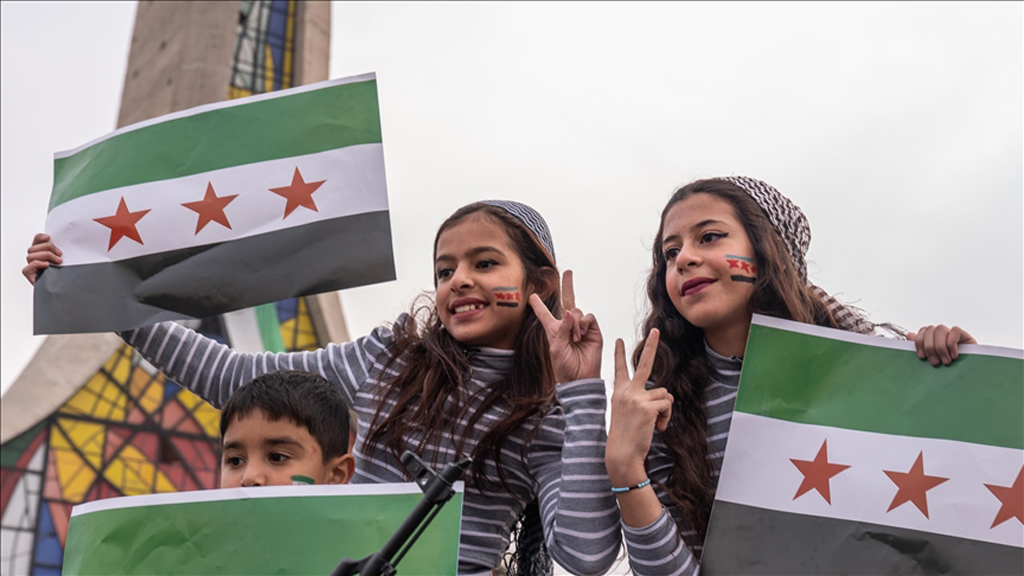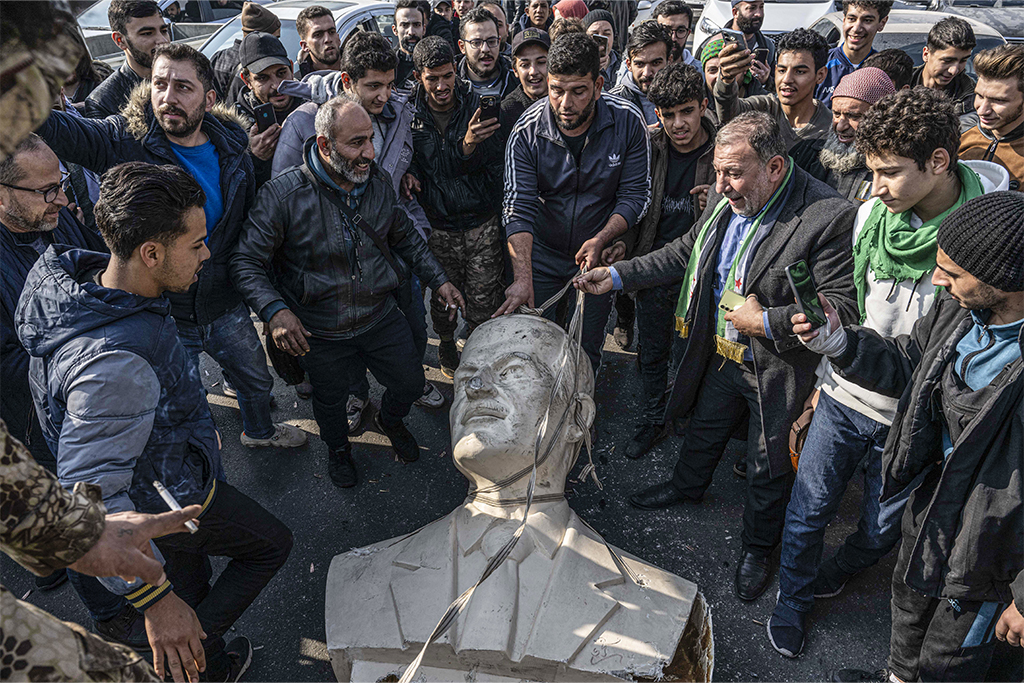Undoubtedly, one of the most defining moments of this year was
the Russian invasion of Ukraine on Feb. 24.
That crisis evolved into a war of attrition against Russia, with the United States and the European Union openly supporting Ukraine. It also introduced a major geopolitical rupture into the international system.
Without a doubt, Ukraine and Russia suffered more than anyone over the last 10 months. Moscow could not get the quick results expected, and its forced retreat from Kyiv and Kharkiv hurt the Russian military’s image. Whereas Russia counter-balanced those setbacks with the threat of nuclear war, Ukraine, receiving more support from the West, feels like it might achieve victory.
Ukrainian President Volodymyr Zelenskyy’s
trip to the United States secured enough financial support from Washington to keep fighting until the fall of 2023. As the war drags on, polarization between the West and Russia deepens in many areas, including energy and nuclear security.
U.S.-China rivalry
Another major development was
the U.S.-China rivalry becoming more intense.
To make sense of that rivalry, which suggests that humanity faces the uncertainty of a multipolar order, it would suffice to take a quick look at the China-Arab States Summit and
the U.S.-Africa Leader Summit that took place in Riyadh and Washington, respectively, earlier this month.
At this time, Beijing seems determined to defend its security interests in Asia and its commercial empire in the Middle East and Africa.
Washington, in turn, continues to take steps to contain China’s influence in many parts of the world, starting with Europe.
In contrast, many Asian, African, Latin American and Middle Eastern states did not join Western sanctions against Russia, thus refusing to become a party to any rivalry between the West and Russia or the United States and China.
Meanwhile, many middle-sized countries pursue a new and “autonomous” foreign policy to get ready to encounter emerging global risks and seize new opportunities.
The
energy, production, logistics and food crises (that accompany great power competition, which some call the “new cold war,” “the footsteps of a new world war” or “nuclear war”) compel the "other" players in the international arena to take action.
'Fairer world is possible'
Hardly anyone was surprised to see Türkiye, a long-standing critic of the United Nations system that argues that “a fairer world is possible,” take the initiative in light of those developments.
President Recep Tayyip Erdoğan attempted to arrange a meeting between the Russian and Ukrainian leaders to de-escalate tensions and remained active in the diplomatic arena throughout 2022.
His major achievements, including the grain deal and the prisoner exchange, received plenty of attention from the international media. It goes without saying that those accomplishments originated in Türkiye’s pursuit of an “autonomous” foreign policy in recent years.
Indeed, Ankara successfully implemented an exceptional balance-of-power policy amid the Ukraine war, leaving foreign governments envious. Specifically, Türkiye blocked the passage of Russian warships through the Turkish Straits without joining the Western sanctions against Moscow.
The country also supplied Ukraine with armed drones, munitions and electricity. Having discovered significant natural gas reserves in the Black Sea, Türkiye pursues closer cooperation
with Russia to become an energy distribution hub.
At the same time, Ankara beefed up the Organization of Turkic States (OTS) and pioneered efforts to deliver
Turkmenistan’s natural gas to Europe.
There is no doubt that Türkiye will significantly contribute to any effort to end the Ukraine war by offering the necessary security guarantees to the Ukrainians and the Russians.
In this regard, "
peace diplomacy" emerges as a new area of expertise among Turkish diplomats. Türkiye has already contributed to European security by maintaining contact with Russia and Ukraine simultaneously.
Normalization efforts
Another aspect of the ongoing transformation of Turkish foreign policy relates to the country’s commitment to
normalization.
Earlier this year, Türkiye
repaired its relations with the United Arab Emirates (UAE), Saudi Arabia and Israel. It also attaches importance to normalization with Egypt and
Syria.
The first trilateral meeting, which took place in Moscow on Wednesday, brought together Türkiye’s Defense Minister Hulusi Akar and intelligence chief Hakan Fidan, with their Russian and Syrian counterparts.
That normalization process may be in its early days, yet it is unmistakably linked to the Ukraine crisis.
The critics of Türkiye’s policy toward Russia, which they once described as “dependency,” currently observe that the Ukraine crisis radically transformed that relationship.
Indeed, Ankara and Moscow have managed to “cooperate” and “compete” simultaneously since 2015. Having competed against each other in Syria, Libya and Nagorno-Karabakh, the two governments pursued closer cooperation on energy. Nowadays, they take that relationship to a new level in Syria.
The situation in Syria might change drastically if Russia, under pressure due to the Ukraine war, successfully persuades Syria's Bashar Assad regime to engage in diplomacy.
Obviously, that kind of change could be significant enough to force the United States to revise its policy toward Syria – and the YPG, the PKK terrorist organization’s Syrian affiliation.
To sum up, Türkiye distinguished itself in three key areas in 2022.
– It consolidated its global position by adopting a balanced policy amid the Russia-Ukraine crisis and engaging in proactive diplomacy.
– It further strengthened its regional influence by normalizing its relations with the UAE, Saudi Arabia and Israel.
– It became active in the Caucasus and Central Asia through
the Organization of Turkic States framework.
Those developments led to Türkiye’s emergence as a provider of stability and security in the Black Sea, the Caucasus, the Balkans and North Africa.
